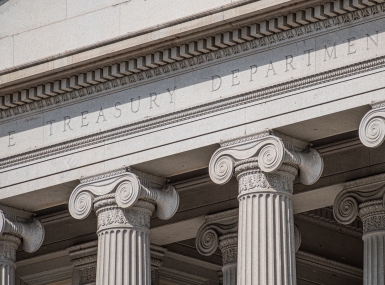Marketplace Fairness Act garnering more attention
Author

Mike Belarmino

Charlie Ban
Upcoming Events
Related News

Sens. Mike Enzi (R-Wyo.), Dick Durbin (D-Ill.), Lamar Alexander (R-Tenn.) and Heidi Heitkamp (D-N.D.) have introduced the Marketplace Fairness Act, (MFA) of 2015.
Similar to the legislation that passed the Senate in 2013 with strong bipartisan support, the bill (S. 698) does not create a new tax; rather, it simply gives states and local governments the ability to enforce existing sales tax laws. By expediting the enforcement of existing sales taxes, the MFA would allow Main Street retailers to compete on a level playing field against out-of-state Internet retailers.
Upon enactment, the MFA would not automatically enable state and local governments to enforce existing sales taxes. In order to exercise this authority, state and local governments would need to simplify sales and use tax administration through one of two options:
- authority can be exercised if a state is a member of the Streamlined Sales and Use Tax Agreement where participating states have already implemented simplification measures, or
- a state can adopt measures to meet the minimum simplification requirements detailed in the bill. Sellers with less than $1 million in annual nationwide remote sales are exempt from collecting. Additionally, under the bill, the authority to enforce could not be exercised until one year after enactment or during the first holiday shopping season after enactment.
Legislation that allows the collection of sales taxes on remote sales has been a longstanding priority for NACo. The current inability of state and local governments to enforce existing sales taxes is essentially the result of two-decades-old U.S. Supreme Court decisions National Bellas Hess v. Department of Revenue (1967) and Quill Corp. v. North Dakota (1992). Both cases dealt with requiring sales tax collection by sellers who were not physically located within a state.
In Quill, the court held that states cannot require retailers with no in-state physical presence to collect the sales tax. Even though the Quill decision essentially upheld Bell as Hess, the court also held that Congress ultimately has the authority to regulate interstate commerce and could overrule the decision through legislation.
An interesting development related to the Quill and Bell as Hess decisions, occurred in a recent Supreme Court decision in Direct Marketing Association v. Brohl.
At issue was a Colorado law that would require remote sellers to inform Colorado customers annually of their purchases and to send the same information to the Colorado Department of Revenue. The law was an attempt to improve tax collection in the state and did not impose any requirement on sellers to collect, just a requirement to report. Direct Marketing sued the Colorado Department of Revenue, alleging that the reporting requirements violate the U.S. and Colorado Constitutions.
The Bro hl decision, which sent the case back to lower court, wasn't the interesting development. Rather, it was a concurring opinion filed by Justice Anthony Kennedy. In it, Kennedy primarily dealt with the court's previous decisions in Bell as Hess and Quill. He acknowledged that Bro hl would not be the proper case to address the two prior decisions because Bro hl does not raise the issue of collecting sales taxes. However, he specifically added: "Given these changes in technology and consumer sophistication, it is unwise to delay any longer a reconsideration of the court's holding in Quill. A case questionable even when decided, Quill now harms states to a degree far greater than could have been anticipated earlier."
Although this is only one justice's opinion, it will be interesting to see whether it will provide any motivation for Congress to finally act on the issue after years of the legislation's languishing in previous sessions.
Attachments
Related News

County Countdown – April, 22, 2024
Every other week, NACo’s County Countdown reviews top federal policy advocacy items with an eye towards counties and the intergovernmental partnership.

White House OMB releases final revisions federal Uniform Guidance (2 CFR Part 200)
The White House OMB released final revisions to the federal Uniform Guidance that outline compliance and reporting requirements for federal financial assistance.

Treasury Department releases new obligation guidance for the ARPA State and Local Fiscal Recovery Fund
On March 29, the U.S. Department of Treasury released new FAQs related to their Obligation Interim Final Rule for the ARPA Recovery Fund.
